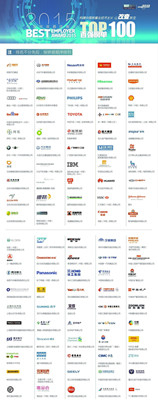(单词翻译:单击)
【背景】
日前,中智联招聘联合北京大学企业社会责任与雇主品牌传播研究中心,发布了“2015中国年度最佳雇主”百强榜单。
【新闻】
请看《中国日报》的报道
Despite heavy smog, skyrocketing house prices and living pressures, China's first-tier cities, including Beijing, Shanghai and Guangzhou, are still the top the choices for the best brains.
At the same time, smaller cities trying to attract high-end talent are facing challenges both in recruiting and retention.
虽然有雾霾、房价飞涨和生活压力等问题,但是北京、上海和广州等中国一线城市仍是优秀人才的首要选择。
同时,试图吸引高端人才的小城市则面临着招聘和留住人才的双重挑战。
【讲解】
living pressures是生活压力;high-end talent是高端人才。
上周五,中国人力资源网站(human resources website)智联招聘发布了2015最佳雇主(Best Employers)榜单。在最佳雇主百强名单中,70%的企业位于一线城市(first-tier cities)。在百强名单中,40家企业位于北京,17家位于上海,10家位于广州。
智联招聘CEO郭盛表示,这表明此前有关跳槽者(job-hoppers)更倾向于小城市(smaller cities),想逃离北上广的报道是不真实的。大部分优秀人才(the best talents)都不想留在三四线城市。原因是,需要优秀人才的多为先进又增长快速的行业(advanced and fast-growing industries),而这些行业多数位于大城市。
但是随着中国城市化的发展(urbanization develops),小城市对高端人才的需求日益增加。为了吸引人才(attract talent),吸引海归(overseas returnees)和外国专家(foreign experts),小城市推出财政支持(financial support)、住房补贴(housing subsidies)、为员工子女解决教育问题(education solutions for the children of prospective workers)等优惠政策(preferential policies)。
但是许多公司依然不能招聘到合格人选(qualified candidate)。郭盛表示,部分原因是因为小城市缺乏支持高端行业(high-end industries)和项目发展的机制(mechanism),比如成熟的经济结构(a mature economic structure)和融资环境(fundraising environment)。
郭盛说,一般来说,留住人才主要有三种方式,即事业、薪资(salary)和激励政策(incentive policies)。

可可原创,未经许可请勿转载


